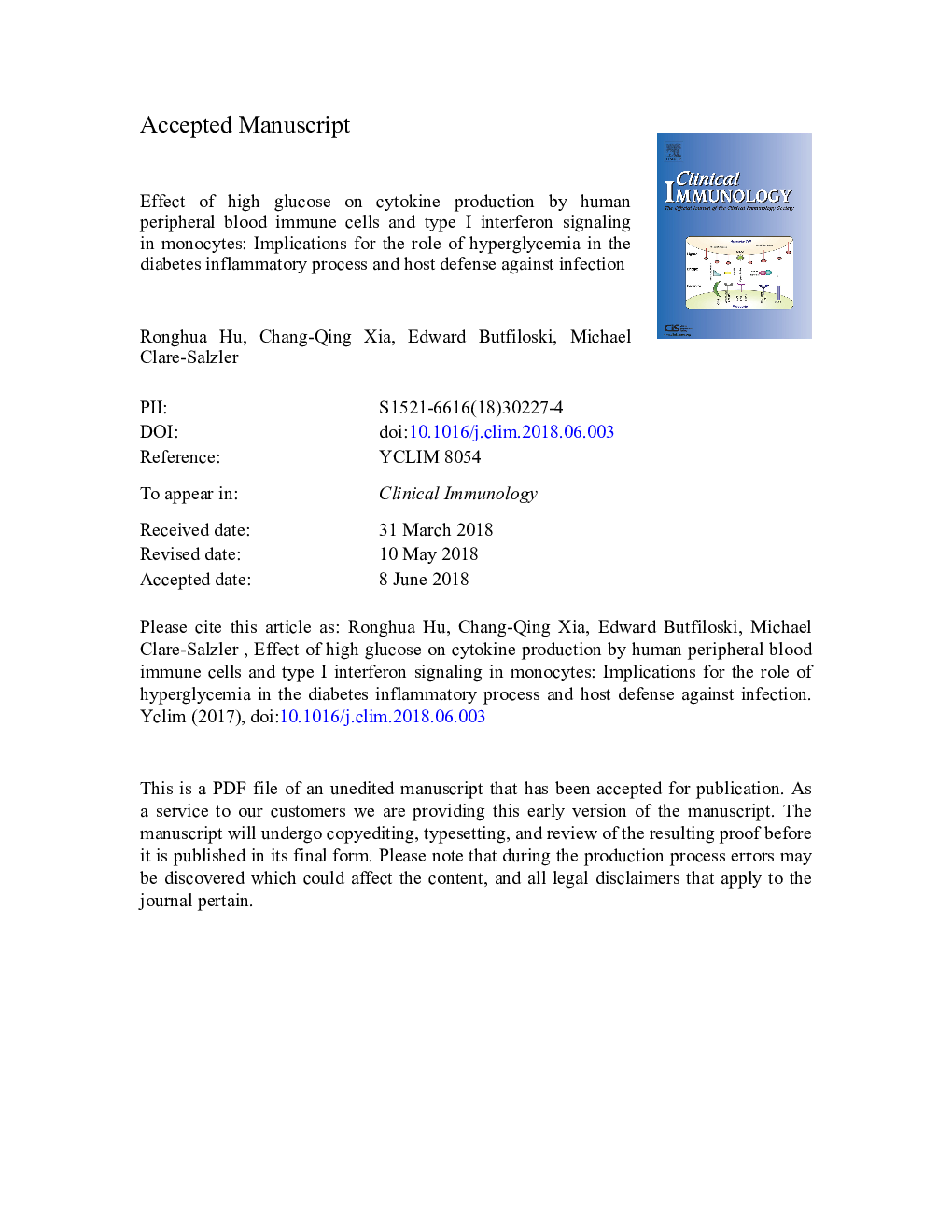| کد مقاله | کد نشریه | سال انتشار | مقاله انگلیسی | نسخه تمام متن |
|---|---|---|---|---|
| 10022854 | 1589395 | 2018 | 35 صفحه PDF | دانلود رایگان |
عنوان انگلیسی مقاله ISI
Effect of high glucose on cytokine production by human peripheral blood immune cells and type I interferon signaling in monocytes: Implications for the role of hyperglycemia in the diabetes inflammatory process and host defense against infection
دانلود مقاله + سفارش ترجمه
دانلود مقاله ISI انگلیسی
رایگان برای ایرانیان
کلمات کلیدی
موضوعات مرتبط
علوم زیستی و بیوفناوری
ایمنی شناسی و میکروب شناسی
ایمونولوژی
پیش نمایش صفحه اول مقاله

چکیده انگلیسی
The major metabolic feature of diabetes is hyperglycemia which has been linked to the diabetes inflammatory processes, and diabetes-related vulnerability to infection. In the present study, we assessed how glucose affected PBMCs in type I interferon (IFN) production and subsequent signaling. We found that the moderately elevated glucose promoted, and high glucose suppressed type I IFN production, respectively. Pre-exposure to high glucose rendered monocytes more sensitive to IFN-α stimulation with heightened signaling, whereas, instantaneous addition of high glucose did not exhibit such effect. Consistent with this finding, the mRNA levels of IFN-α-induced IRF-7 in PBMCs were positively correlated with HbA1c levels of diabetes patients. Additionally, we found that high glucose promoted the production of other proinflammatory cytokines/chemokines. This study suggests that hyperglycemia may affect the inflammatory process in diabetes via promoting proinflammatory cytokines, as well as the host defense against microbial infections through impeding type I IFN production and signaling.
ناشر
Database: Elsevier - ScienceDirect (ساینس دایرکت)
Journal: Clinical Immunology - Volume 195, October 2018, Pages 139-148
Journal: Clinical Immunology - Volume 195, October 2018, Pages 139-148
نویسندگان
Ronghua Hu, Chang-Qing Xia, Edward Butfiloski, Michael Clare-Salzler,